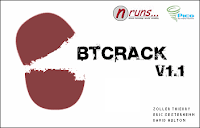Luxembourg the country where the improbabe is still possibe. Years ago it came to my attention that Restena the central registrar (yes thats a word) for LU Domain names has a very strange notion when it comes to how it gives out domain names.
Being one of the founding members of the EU you would presume that Luxembourg is somehow mature with regards to free expression, freedom of speech and similar concepts. However similar to IRAN or other arab countries, there are certain domain names you simpy can't aquire.
Though Restena claims in their Domain Name charter #4, that it "[..] does not in principle proceed to any "a priori" verification of an application for a domain name" such verification of course happens, just a few lines below we read
"Domain name applications which belong to one of the following categories are however (sic) rejected:
- (a) the domain name contains the name of any Luxembourg municipality or village, as indicated in the Annuaire Officiel 1995 - Vol. 2 - Aperçu géo-politique et localités du Grand-Duché", unless it is the local administration in question filling in the application form for its own name as a domain name;
- (b) domain names which are identical to an already registered domain name, or which are identical to a previously applied valid domain name;
- (c) domain names considered obviously to be contrary to public order or good morals
It begs the questions as to how exactly a simple domain name can be "considered to be contrary to public order or good morals" and who exactly decides what is against "good morals" (and are there bad morals?) Is there an official board ? I mean there is no other way to get an LU domain name than over Restena (directy or indirectly).
Now here is the Blacklist of domains names, afaik this list is not officialy linked on the DNS.LU site. Google Cache
Blocked Domain names List
Let's go through some of them and ask ourselves, if to our 2009 standard these domain names contain a name of a luxemburgish village/municipality or are identical to an already registered domain name or are contrary to public order and/or good morals. (really dig the "good" here) :
- sex.lu & sexatlas.lu & sexy.lu & sexx.lu & sexxx.lu
These domain names are not names of villages and are not identical to others. So are these domain names themselves against public order or "good morals" ? As a reminder, we are not speaking of content but solely about the domain names. We have the year 2009 not 1850, and as such I personaly don't feel offended by these domain names. Do you? - benelux.lu & ardennes.lu
No village, not against public order and not similar to existing domain names, so why are they on the list. I don't know, I personaly presume that the person in charge at Restena blocks and blacklists domains he doesn't like. - The rest
pretty obvious.










.png)

.png)

